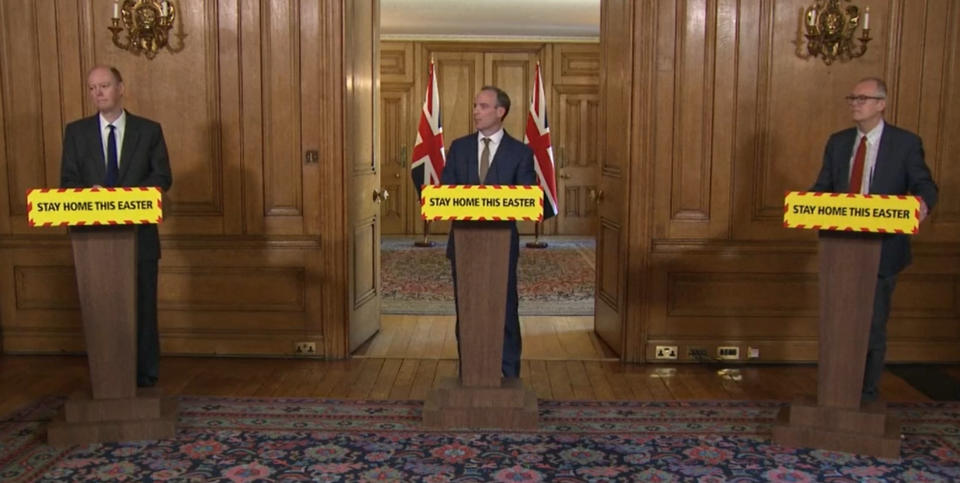Coronavirus: Britain enters 4th week of lockdown with outlook for finance 'deteriorating'

New survey data shows the outlook for the UK’s key financial services industry is “deteriorating”, as Britain enters its fourth week of lockdown with no set end in sight.
The Confederation of British Industry (CBI) said on Tuesday that financial firms expect demand, profitability and employment to decline sharply in the coming months.
“The bulk of the survey took place before social distancing measures were ramped up, but there were already signs of the COVID-19 pandemic leaving its mark,” said Rain Newton-Smith, CBI chief economist.
“Expectations for business volumes and headcount weakened, non-performing loans rose sharply, and financial firms are planning heavy cuts to investment in the year ahead.”
The survey findings underline the heavy economic cost of the COVID-19 pandemic, which has brought economies around the world to virtual standstill. The UK is entering its fourth week of lockdown, with all non-essential businesses shut and the bulk of the population staying home.
According to a report in The Times, UK chancellor Rishi Sunak told colleagues GDP could shrink by up to 30% this quarter because of the coronavirus lockdown. Sunak is pushing for restrictions on everyday life to be eased as a result, according to the newspaper.
Foreign Secretary Dominic Raab on Monday signalled the lockdown would continue without saying when an end could come.
“We still have a long way to go,” Raab said on Monday, as he deputised for UK prime minister Boris Johnson who is recovering from COVID-19.
“We’re still not past the peak of this virus. We don’t expect to make any changes to the measures currently in place at that point, and we won’t until we’re confident as we realistically can be that any such changes can be safely made.”
Read more: Fears government can't stop 'meteor hitting planet business'
The World Health Organization (WHO) has warned lifting restrictions too early "could lead to a deadly resurgence” of the novel coronavirus.
The Department of Health on Monday 13 April said the official UK death toll rose by 717 in a day to 11,329. This only takes into account those who have died in a hospital but is still the fifth highest death toll globally.
“Amidst this sobering death toll, there are also some positive signs from the data that we are starting to win this struggle,” Raab said.
The government put in place “unprecedented” financial measures worth 15% of GDP to help combat the economic downturn caused by the pandemic. However, businesses are increasingly at risk of going bust and jobs are already being lost across the country.
Banks are playing a key role in handing loans to small businesses but there has been criticism of the slow pace at which lenders are offering state support.
READ MORE: UK economy could shrink by quarter if lockdown persists
“Financial services are already playing an essential role in helping companies with their cashflow, through channelling funds from the government’s support schemes,” Newton-Smith said. “But like other businesses, they’ve also been struck by staff shortages and changes to how they operate.
“As a result, alleviating capacity pressures and streamlining how firms access government support through our financial institutions is vital. With the peak of the economic impact to come, equipping the sector to deliver for business is crucial in supporting the growth recovery beyond the pandemic.”
Last week, the National Institute of Economic and Social Research (NIESR) said that the UK’s GDP could shrink by 15% to 25% in the second quarter of 2020 if the coronavirus lockdown persists until June.

 Yahoo Finance
Yahoo Finance 
